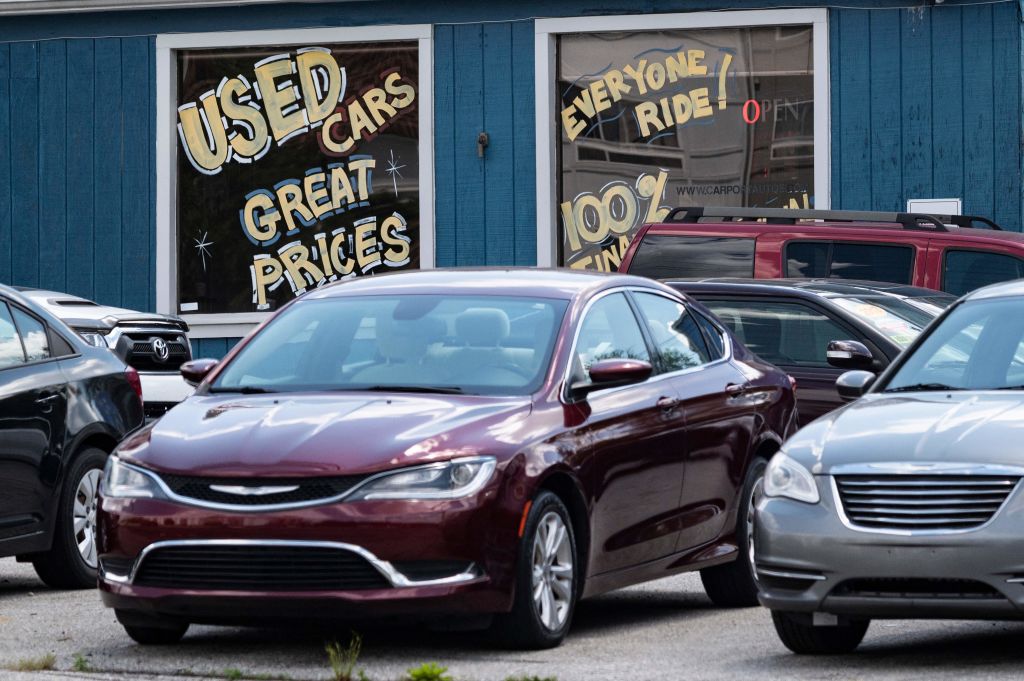Used cars and trucks drove much of May's steep inflation number


A free daily email with the biggest news stories of the day – and the best features from TheWeek.com
You are now subscribed
Your newsletter sign-up was successful
The Labor Department reported Thursday that consumer prices jumped 5 percent in May versus a year earlier. That's the biggest rise in inflation since 2008, and it was steeper than expected, but "right now, it's a yellow traffic light situation," The Washington Post reports. "People are on alert, but there's no panic or slamming of brakes."
There are two main reasons economists and nonpartisan policymakers aren't panicking: First, prices were really low last May due to the COVID-19 pandemic, making a return to normal prices look dramatic, and second, the price increases for many products were due to temporary shortages in supply or materials. Those factors loomed large in the six categories of goods and services that accounted for half the jump in the consume price index (CPI), Bloomberg economists calculate: Used cars, rental cars, car insurance, airfares, hotels, and restaurants.
And of those six categories, used cars and trucks account for about a third of the total monthly CPI increase, the Labor Department says. A dearth of new cars, due largely to production delays caused by a pandemic-related global semiconductor shortage, "has tightened the supply of used cars as owners hold on to their vehicles longer — which, in turn, sent the prices of used cars and trucks soaring 29.7 percent in May, versus a year ago," The Wall Street Journal explains. And because rental car companies can't restock fleets of cars they sold off last year amid slumping demand, prices for car rentals soared 110 percent in May.
The Week
Escape your echo chamber. Get the facts behind the news, plus analysis from multiple perspectives.

Sign up for The Week's Free Newsletters
From our morning news briefing to a weekly Good News Newsletter, get the best of The Week delivered directly to your inbox.
From our morning news briefing to a weekly Good News Newsletter, get the best of The Week delivered directly to your inbox.
"As the economy adjusts to a post-pandemic world," the Post says, "suppliers will adjust. Shortages will dissipate. Factories will eventually produce more furniture, washers, cars, and computer chips," and the price increases will likely be short-lived. However, "price increases on services, including rent, often stick around for years to come, especially if companies bump up wages by several dollars," the Post explains. "Businesses often turn around and pass those extra costs on to consumers. Then employees ask for more pay again and the price hike cycle begins."
A free daily email with the biggest news stories of the day – and the best features from TheWeek.com
Peter has worked as a news and culture writer and editor at The Week since the site's launch in 2008. He covers politics, world affairs, religion and cultural currents. His journalism career began as a copy editor at a financial newswire and has included editorial positions at The New York Times Magazine, Facts on File, and Oregon State University.
-
 How the FCC’s ‘equal time’ rule works
How the FCC’s ‘equal time’ rule worksIn the Spotlight The law is at the heart of the Colbert-CBS conflict
-
 What is the endgame in the DHS shutdown?
What is the endgame in the DHS shutdown?Today’s Big Question Democrats want to rein in ICE’s immigration crackdown
-
 ‘Poor time management isn’t just an inconvenience’
‘Poor time management isn’t just an inconvenience’Instant Opinion Opinion, comment and editorials of the day
-
 Buffett: The end of a golden era for Berkshire Hathaway
Buffett: The end of a golden era for Berkshire HathawayFeature After 60 years, the Oracle of Omaha retires
-
 Tariffs have American whiskey distillers on the rocks
Tariffs have American whiskey distillers on the rocksIn the Spotlight Jim Beam is the latest brand to feel the pain
-
 TikTok secures deal to remain in US
TikTok secures deal to remain in USSpeed Read ByteDance will form a US version of the popular video-sharing platform
-
 SiriusXM hopes a new Howard Stern deal can turn its fortunes around
SiriusXM hopes a new Howard Stern deal can turn its fortunes aroundThe Explainer The company has been steadily losing subscribers
-
 Unemployment rate ticks up amid fall job losses
Unemployment rate ticks up amid fall job lossesSpeed Read Data released by the Commerce Department indicates ‘one of the weakest American labor markets in years’
-
 How will the Warner Bros. bidding war affect the entertainment industry?
How will the Warner Bros. bidding war affect the entertainment industry?Today’s Big Question Both Netflix and Paramount are trying to purchase the company
-
 Texas is trying to become America’s next financial hub
Texas is trying to become America’s next financial hubIn the Spotlight The Lone Star State could soon have three major stock exchanges
-
 US mints final penny after 232-year run
US mints final penny after 232-year runSpeed Read Production of the one-cent coin has ended
